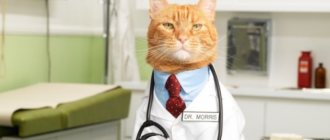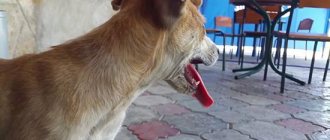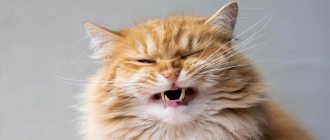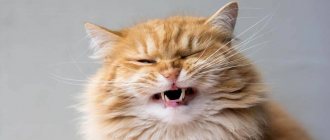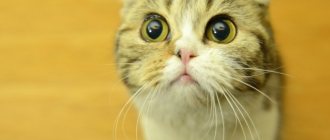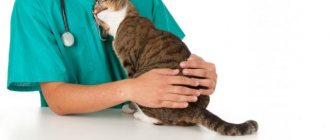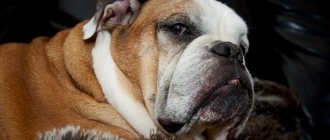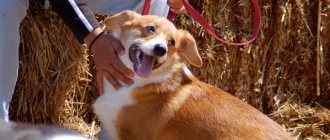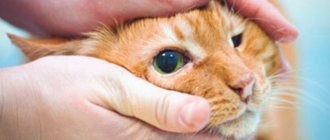If your cat is coughing, it is important to understand what happened to him. The symptom can indicate a variety of problems - from a foreign body getting into the mouth to an asthma attack. A veterinarian can make an accurate diagnosis, and the owner must pay attention to the accompanying signs. This will help to quickly identify the disease and prescribe the correct treatment to the animal.
What to pay attention to
A cat's cough, the causes and treatment of which can be different, worries all owners who are faced with unfamiliar and frightening symptoms. Of course, it is better to immediately contact a veterinarian. But if this is not possible, you can try to understand what the problem is. Sometimes a cat's cough is completely harmless and goes away on its own. In other cases, specialist help will be required.
You can understand why a cat coughs and how to treat it in each specific case by assessing the general condition of the animal and specifying the presence or absence of other characteristic signs. It is also necessary to record the number and duration of attacks, and understand what time of day they occur.
Sneezing and coughing indicate that something is irritating the cat's mucous membranes. The reaction to viruses, parasites or a foreign body can be almost the same. The animal rubs its muzzle with its paw, tilts its head, stretches its neck, trying to get rid of unpleasant sensations. Sneezing is most often associated with a problem in the nose area, while coughing indicates that the irritant has reached the mucous membrane of the throat.
Some owners are scared by the sound a cat makes. Due to the specific structure of the throat, palate and tongue, the animal makes expectoration movements, opening its mouth wide and intensely sticking out its tongue. The process is accompanied by heavy, hoarse breathing, as if the cat is suffocating. Usually it is not possible to clear your throat right away; sometimes the process ends with vomiting or copious amounts of saliva.
The causes of cough in a cat can be varied. Most often they become:
- foreign body in the mouth, nose or throat;
- a ball of hair that the animal could not swallow;
- eating food too greedily;
- cold.
Coughing immediately after eating should not cause panic in the owner. Probably a piece of food has stuck to the roof of your mouth and is irritating your throat. A choking pet makes wheezing sounds and sticks out its tongue, trying to get rid of the problem. Convulsive coughing ends with vomiting, after which the pet eats the vomited food and calms down. This behavior is typical for representatives of some breeds, as well as for cats that swallow food too greedily.
Some cats cough frequently, while others make almost no such noise. If this is a one-time phenomenon, after coughing the cat calms down and behaves as usual. But sometimes the cat cannot get rid of the problem on its own; the cough gets worse and is accompanied by other unpleasant symptoms. In this case, you should be vigilant, carefully observe the animal and try to help it.
How to treat
After determining the provoking factors, appropriate treatment is prescribed. Using medications without consultation with a specialist can cause negative consequences. The wrong choice of medication or its dosage can lead to complications. However, it is very useful to familiarize yourself with general information about existing drugs. In some cases, you can use tablets intended for humans. It is not recommended to give syrups due to the large amount of sugar, dyes, and flavors they contain. Medicines containing codeine and alcohol are also not allowed.
Blocking substances help to quickly eliminate attacks, but do not affect its source. Therefore, they can be given to your pet only in combination with other means. Expectorants do an excellent job of treating infectious coughs by thinning mucus and removing it from the respiratory tract.
How to treat a cough
What to do when a cat chokes
When your pet coughs and wheezes, constantly rubs its mouth with its paw, opens its mouth wide and sticks out its tongue, you should be wary. The cause may be a foreign body. An insect, small parts of toys, scattered beads, toilet filler, strings, and plastic bags can get into your pet's mouth. Often, a kitten may cough after accidentally swallowing Christmas tree tinsel, threads from a ball and other objects that it uses for games. Sometimes the situation is more serious. The cat swallows a spicy fish or chicken bone, which gets stuck in the throat and makes it difficult to breathe. If the problem is not addressed urgently, the animal may suffocate or die from bleeding after soft tissue damage.
A careful examination will help you find out the real reason. You need to take the pet in your arms and open its mouth. If a foreign object cannot be found in the mouth, you need to urgently take the animal to the clinic. In this case, the veterinarian will tell you what to do if the cat is coughing. The doctor will examine the throat, determine exactly where the foreign body is located, and try to push it through, freeing the throat. If this is not possible, the pet will undergo surgery. You can’t put off a trip to the clinic: if a sharp object gets into the esophagus, the clock counts.
A hairball stuck in the throat does not require removal. The cat manages to either spit it out or swallow it. Frequent brushing of your pet will help prevent further licking of lost hairs. It is recommended to regularly give your cat a special paste with fish or meat flavor, which can be purchased at a veterinary pharmacy. The drug promotes the rapid and painless dissolution of hairballs trapped in the stomach.
How to help your pet
First, calm down yourself and try to calm your pet. Frankly speaking, at home it is only possible to alleviate the condition of a sick animal.
- To do this, ventilate the room, humidify the air, but avoid drafts, so as not to harm the already sick animal.
- You can inhale warm, moist air by running hot water into the bathroom, and then leave the cat in the bathroom for a while.
Cats are very sensitive to emotions, so be sure to caress your pet, talk to him in a calm, confident tone, then the animal will understand that the owner will help him, this will alleviate the patient’s condition.
Under no circumstances should you give medications before going to the veterinary clinic; this is important for making an accurate diagnosis; besides, not knowing the exact cause of the cough can only harm the animal.
Possible causes of cough and their treatment
Coughing in cats can also signal more serious problems. Let's look at them in more detail.
Pneumonia
The most common cause is respiratory diseases. If hypothermia or infection with bacteria or fungi occurs, the animal may develop bronchial pneumonia. The disease is typical for weakened animals; a hereditary predisposition is possible.
The main symptom of developing pneumonia is a dry, barking cough in a cat. The animal breathes with difficulty, an attack can occur at any time of the day, and it ends just as suddenly. The cat coughs as if it was choking, but there are no signs of vomiting. After a few days, sputum forms, and when auscultated, wheezing is felt in the chest. The cat tries to cough it up, spitting out small portions of saliva. Characteristic symptoms include fever, weakness, apathy, and refusal to eat. A clear, colorless or yellowish liquid flows from the nose and bakes into crusts. Breathing becomes rapid and intermittent, and in advanced cases, fever is possible.
An accurate diagnosis can only be made in a clinical setting. Pneumonia in cats can occur against the background of another infectious disease, for example, canine distemper. In this case, treatment begins not with eliminating the symptoms, but with searching for the root cause. A set of tests, as well as an ultrasound examination of the lungs, will help you understand why your pet is coughing. The veterinarian will determine how to treat pneumonia. Typically, the pet is prescribed antibiotics, expectorants and mucolytic drugs. They will quickly relieve coughing attacks, but the full therapeutic course will last at least a month.
Viral disease
Is your pet coughing as if he was choking? It is possible that he has a severe viral disease - rhinotracheitis. The cause is the feline herpes virus, which is easily transmitted from one pet to another. The disease occurs in an acute form. After a few days, characteristic symptoms are noticeable: sneezing, constant cough with expectoration of sputum, swelling of the mucous membranes, purulent discharge from the eyes and nose. Due to damage to the tissues of the throat, the cat cannot swallow normally, so it often refuses food and even water.
Treatment of rhinotracheitis is carried out under the supervision of a veterinarian. It is impossible to completely rid the body of the virus; the doctor’s task is to stabilize the pet’s condition, remove swelling, cough and other unpleasant symptoms. The cat is prescribed antibiotics, immunomodulators, antiviral and antipyretic drugs. The course is long and cannot be interrupted.
Worms
Coughing in cats can be caused by severe helminthic infestation. The larvae of flatworms or roundworms irritate the mucous membrane of the throat. A sign of infection may be weight loss with increased appetite. Other manifestations are frequent vomiting, dull coat with traces of dandruff. After accurately identifying the parasites, the animal is given anthelmintic drugs in the form of tablets, paste or suspension. In case of severe infestation, re-treatment is necessary after 5-7 days. Treatment is best done under the supervision of a veterinarian. Therapy cannot be delayed; parasites can cause intoxication of the body, which can lead to damage to the kidneys, liver and even death of the pet.
Asthma attacks
Sometimes a cat may cough, sticking out its tongue and breathing heavily. The cause may be an asthma attack. This disease manifests itself in early childhood and quickly becomes chronic. The cause is a narrowing of the bronchi, making breathing difficult. Gradually, the walls of the bronchi thicken, the diaphragm stretches, and inflammatory processes are possible, accompanied by tissue swelling and copious mucus secretion. The animal behaves restlessly, breathes hoarsely, tries to cough up sputum, sits with its head down and neck outstretched. The cat may faint, its lips turn blue and its eyes roll back. Such manifestations are very frightening for owners and require urgent action.
Treatment can be lengthy and begins only after an accurate diagnosis has been established. The cat is tested for the presence of parasites, and a hardware examination of the chest and abdominal cavity is performed. To relieve bronchospasm, glucocorticosteroids are prescribed; bacterial inflammatory processes are treated with antibiotics. Complexes of vitamins C and E, which are natural antioxidants, are useful. For home use, it is recommended to purchase an inhaler. It will help relieve a coughing attack and prevent the cat from suffocating.
Diagnostics in a veterinary clinic
Diagnosis is based on identifying the cause of the cough. The veterinarian examines the animal and collects anamnesis. The owner must clearly describe the signs, frequency and nature of the cough, highlight some characteristic features, for example, blood, sputum production.
A cough with sneezing may indicate cat flu. If it is accompanied by wheezing, then most likely your pet has asthma. Sputum production coupled with weight loss and diarrhea indicates the possible presence of parasites.
Necessary diagnostic methods include:
- general and clinical blood tests;
- serological blood test;
- Analysis of urine;
- chest x-ray;
- ECG;
- tracheal endoscopy;
- organ biopsy;
- culture of bronchial secretions for microflora.
Until a particular diagnosis is confirmed, the veterinarian prescribes maintenance therapy to relieve coughing attacks.
Preventive measures
Carefully following your veterinarian's instructions will help prevent coughing attacks. If an animal has chronic diseases (bronchial asthma, fungal pneumonia), it is necessary to promptly give it immunomodulatory, antifungal drugs and vitamin complexes. It is recommended to take a blood test 1-2 times a year to confirm the absence of hidden ailments.
Preventive administration of anti-worm medications will help prevent helminthic infestation. They are given every 3 months, choosing products with the softest and most gentle composition. Kittens, pregnant and elderly cats, as well as animals with free access to the street are at particular risk.
If coughing attacks occur while eating, you should review your pet's menu. It is better to replace hard granules with canned food. Soaking ready-made dry food in water also helps. Cats that eat natural food should not be given river fish with bones on which the cat can choke. Tubular chicken bones are strictly prohibited. If your cat likes to chew, it is better to give her ready-made toys made from beef veins, which can be bought at a pet store.
It is necessary to remove from the house easily breakable toys, Christmas tree tinsel and other items that the animal can swallow. It is recommended to remove poisonous indoor plants. An accidentally bitten leaf can cause swelling of the mucous membrane and an attack of suffocation.
Only a veterinarian can understand why a cat is coughing and what to do. If attacks occur repeatedly and are accompanied by other alarming symptoms, you should not postpone a visit to the clinic. They will do all the necessary tests and prescribe adequate treatment that will help maintain the health of your pet.
Heart problems
Many people do not know what to do if a cat coughs and wheezes, for what reason this reflex occurs. A serious reason to see a doctor is the occurrence of heart problems. Most often, this disease occurs in old and overweight animals. At first, coughing rarely bothers the animal, but later it inevitably becomes more frequent.
The disease is diagnosed by tactile and visual examination. The pet's blood pressure is measured, electrocardiography and radiography are performed. Such a disease requires lifelong care for the animal and maintenance therapy. Treatment is prescribed by a veterinarian based on the research results obtained. Giving medications at your own discretion is strictly prohibited.
The cat must be provided with rest, proper nutrition and follow the doctor's instructions. For animals with this pathology, special dietary foods are sold in pharmacies.
